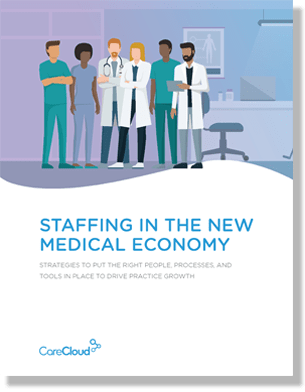Statistics on the increasing popularity of Software-as-a-Service (SaaS) applications and other cloud services point to a positive correlation between healthcare and cloud computing.
Unfortunately, many marketers are taking advantage of the trend to rebrand traditional software applications as cloud and mislead potential customers.
Cloud-washing is the industry term for this kind of activity, which is looked down upon for employing IT buzz-phrases like ‘cloud technology’ and ‘on-demand software’ to describe dressed-up outsourcing deals.
Deceitful marketing is alarming, particularly in a dynamic field like healthcare technology. Practices should look out for red flags when dealing with alleged cloud vendors – mostly independent software vendors – and have a list of questions handy when shopping for cloud applications.
Cloud-Washing Red Flags
Perhaps the most widespread cloud-washing trend is the way independent software vendors (ISVs) rebrand packaged application bundles they keep on web hosting services as SaaS. Although these are easy traps to fall for, there are a number of key differences that’ll help you identify cloud-washers.
- Packaged application deals, albeit hosted and installed by the independent software vendor, require a large upfront investment as opposed to a ‘pay-as-you-go’ arrangement. The software vendor may offer a leasing agreement on occasion, but it is nowhere near as flexible as an authentic cloud application.
- Cloud applications enhance solutions on a constant basis when independent software vendors will not, seeing as the expenses of updating each customer’s customized software options would prove too costly.
- The independent software vendor offers separate instances of its application to customers, and therefore can’t build the kinds of customer communities cloud applications provide.
Questions to Ask Vendors Before Choosing Cloud Software
Forrester Research defines cloud computing as “a standardized IT capability (services, software, or infrastructure) delivered via Internet technologies in a pay-per-use, self-service way.” While concise, many cloud computing newcomers are pressed to differentiate between clouds and the Internet in general.
Below is a set of questions to keep in your arsenal when shopping for cloud applications:
- Are you a software vendor or a service provider? Cloud vendors provide services, period. Even off-premise ISVs only host unique instances of their software packages, which are customized per installation and cannot be easily updated.
- Do you offer services for a monthly fee or a large upfront investment? Cloud apps are ideal for small and mid-size businesses, namely because providers offer services for a low monthly fee as opposed to a pricey upfront lump sum.
- Do I have to purchase and install/manage the software? Simply put, if you have to purchase and manage software, you’re not on a cloud.
- What do I need to provide? With cloud technology, the practice should only provide power, computers, and an Internet connection.
- Do you function across multiple formats? If a cloud vendor doesn’t safely function across multiple browsers and operating systems, then they’re pushing rebranded marketing collateral to cloud-wash an outdated service.
What do you look for when identifying cloud washers? Have you spotted deceitful cloud marketing?




